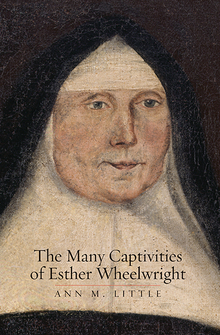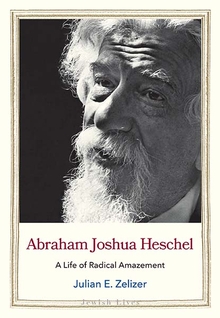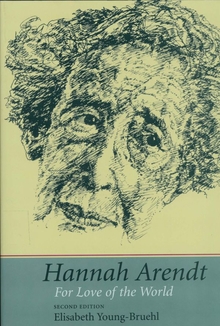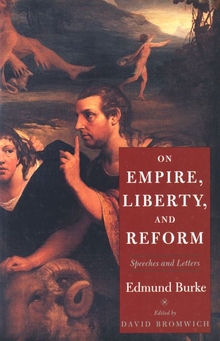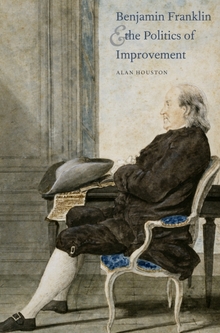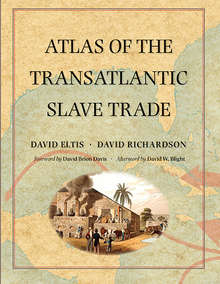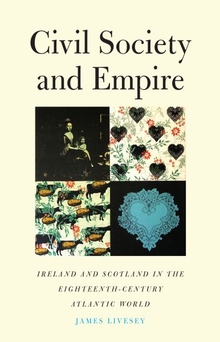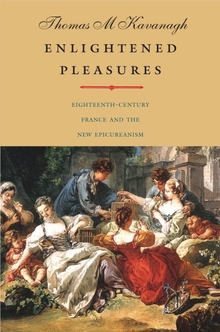The Many Captivities of Esther Wheelwright
WARNING
You are viewing an older version of the Yalebooks website. Please visit out new website with more updated information and a better user experience: https://www.yalebooks.com
Ann M. Little
Out of Print
An eye-opening biography of a woman whose life intersected with three distinct cultures in eighteenth-century America: colonial New England, French Canadian, and Native American
“Esther Wheelwright’s journey—from Puritan girl, to Wabanaki captive, to mother superior of the largest Catholic convent in French Canada—is one of the most fascinating personal stories in the annals of what we call ‘colonial history.’ Deeply researched, and wonderfully contextualized . . . [this book] opens a wide window on three major cultural venues, whose interplay defined and shaped a whole era.”—John Demos, author of The Unredeemed Captive: A Family Story from Early America
Born and raised in a New England garrison town, Esther Wheelwright (1696–1780) was captured by Wabanaki Indians at age seven. Among them, she became a Catholic and lived like any other young girl in the tribe. At age twelve, she was enrolled at a French-Canadian Ursuline convent, where she would spend the rest of her life, eventually becoming the order’s only foreign-born mother superior. Among these three major cultures of colonial North America, Wheelwright’s life was exceptional: border-crossing, multilingual, and multicultural. This meticulously researched book discovers her life through the communities of girls and women around her: the free and enslaved women who raised her in Wells, Maine; the Wabanaki women who cared for her, catechized her, and taught her to work as an Indian girl; the French-Canadian and Native girls who were her classmates in the Ursuline school; and the Ursuline nuns who led her to a religious life.
“Esther Wheelwright’s journey—from Puritan girl, to Wabanaki captive, to mother superior of the largest Catholic convent in French Canada—is one of the most fascinating personal stories in the annals of what we call ‘colonial history.’ Deeply researched, and wonderfully contextualized . . . [this book] opens a wide window on three major cultural venues, whose interplay defined and shaped a whole era.”—John Demos, author of The Unredeemed Captive: A Family Story from Early America
Born and raised in a New England garrison town, Esther Wheelwright (1696–1780) was captured by Wabanaki Indians at age seven. Among them, she became a Catholic and lived like any other young girl in the tribe. At age twelve, she was enrolled at a French-Canadian Ursuline convent, where she would spend the rest of her life, eventually becoming the order’s only foreign-born mother superior. Among these three major cultures of colonial North America, Wheelwright’s life was exceptional: border-crossing, multilingual, and multicultural. This meticulously researched book discovers her life through the communities of girls and women around her: the free and enslaved women who raised her in Wells, Maine; the Wabanaki women who cared for her, catechized her, and taught her to work as an Indian girl; the French-Canadian and Native girls who were her classmates in the Ursuline school; and the Ursuline nuns who led her to a religious life.
Ann Little is professor of history at Colorado State University and the author of Abraham in Arms: War and Gender in Colonial New England. She lives in Greeley, CO.
“In Little’s hands, Wheelwright becomes a vehicle for discussions of any number of subjects, from comparative imperialism to gender, authority and aging in colonial North America. The biographical lens makes it possible to convey important but comparatively abstract historiographical analysis through tangible life experiences.”—Marla R. Miller, author of Betsy Ross and the Making of America
“An utterly absorbing, brilliantly told analysis of a singular life. Little offers us a fresh way to think about early America by foregrounding a female subject and a rich body of primary sources produced by women, and by challenging our gendered notions of appropriate biographical subjects.”—Sophie White, author of Wild Frenchmen and Frenchified Indians: Material Culture and Race in Colonial Louisiana
“Esther Wheelwright’s journey—from Puritan girl, to Wabanaki captive, to mother superior of the largest Catholic convent in French Canada—is one of the most fascinating personal stories in the annals of what we call ‘colonial history.’ And now, as recounted by Ann Little, it offers something more. Deeply researched, and wonderfully contextualized, The Many Captivities of Esther Wheelwright opens a wide window on three major cultural venues, whose interplay defined and shaped a whole era.”—John Demos, author of The Unredeemed Captive: A Family Story from Early America
“Ann Little has produced a stunning biography. From fragments she has woven a compelling tapestry, restoring the life of an eighteenth-century North American woman with depth and sensitivity, not only to her subject but to the ways of recreating past lives.”—Peter C. Mancall, author of Fatal Journey: The Final Expedition of Henry Hudson—A Tale of Mutiny and Murder in the Arctic
“Little has produced a fascinating biography of an extraordinary woman. . . . A must-read.”—Library Journal, starred review
“The story of Wheelwright is unique in its details, but ends up telling a larger story about the lives of women in the region, as well as religion, warfare, status, human nature and rivalry on a local and world stage. This is a book that deserves a permanent place on any bookshelf dedicated to the history of Maine.”—Portland Press Herald
“Little manages to weave together the smallest details of everyday life into a broad, colorful tapestry that rescues Esther from historical obscurity and places her as a woman among other women within her wider colonial North American context. Little’s accomplishment is to be both lauded and emulated.”—Colleen Gray, William and Mary Quarterly
"It is time to take the opposite approach—to transform genre in light of our broadening understanding of gendered dynamics in early American history. If indeed such a methodological revolt takes place, no small thanks will be due to Ann Little’s The Many Captivities of Esther Wheelwright."—Christopher Hodson, New England Quarterly
"The Many Captivities of Esther Wheelwright is an excellent choice for students of early American history and a compelling read for all lovers of history."—Kelly A. Ryan, Journal of American History
"Well worth reading. . . . The Many Captivities of Esther Wheelwright is well-written, well-researched—an important book that will appeal to scholars."—Vivian Bruce Conger, Early Modern Women
“The reader is illuminated. We learn a great deal about the colonial worlds through which Esther Wheelwright moved, even when she herself can barely be glimpsed. . . . All will be grateful for these glimpses of a world made in no small measure by ‘sisters and mothers . . . mothers and daughters’ and for the chance to watch a historian carry out her humane craft.”—Catherine O’Donnell, Journal of Early American History
Ann M. Little, Associate Professor of History at Colorado State University, has been selected as the winner of the 2018 Albert B. Corey Prize for the The Many Captivities of Esther Wheelwright (Yale Univ. Press, 2016). The Corey Prize is awarded biennially by the American Historical Association (AHA) in recognition of the best book on Canadian-American relations or on the history of both countries.
ISBN: 9780300218213
Publication Date: September 27, 2016
Publication Date: September 27, 2016
304 pages, 6 1/8 x 9 1/4
20 b/w illus.
20 b/w illus.

